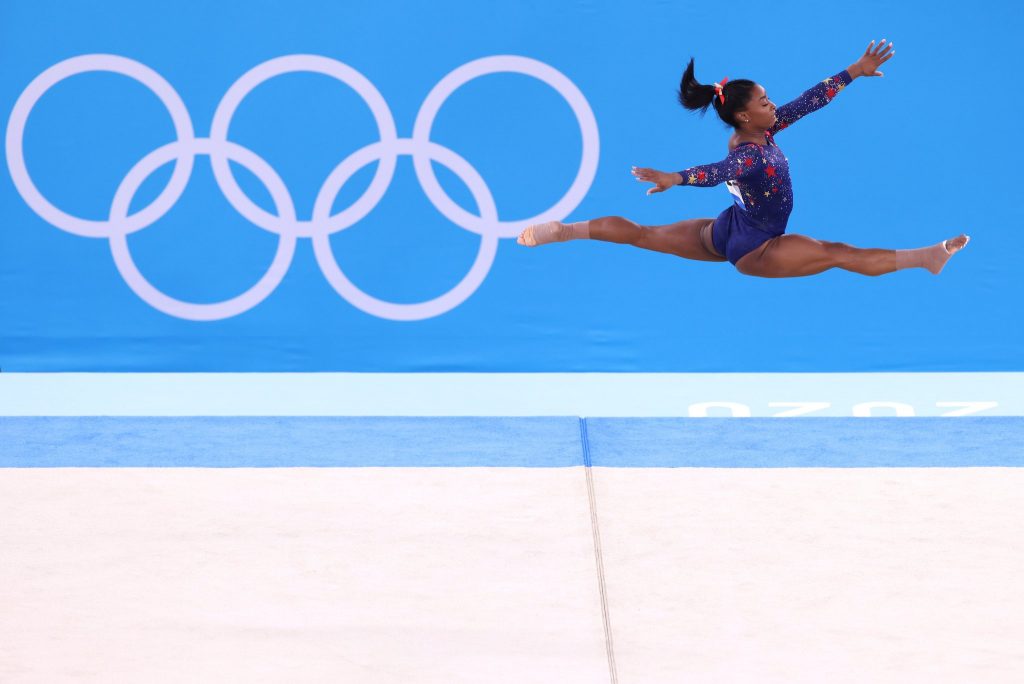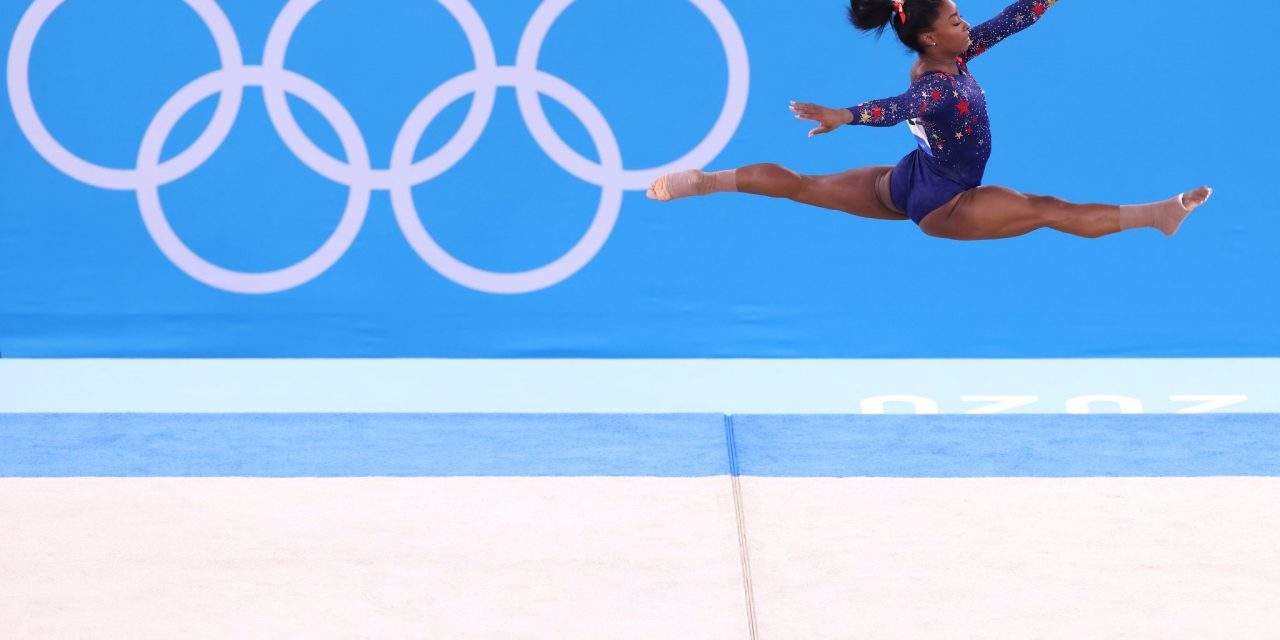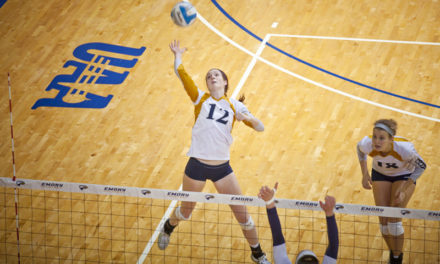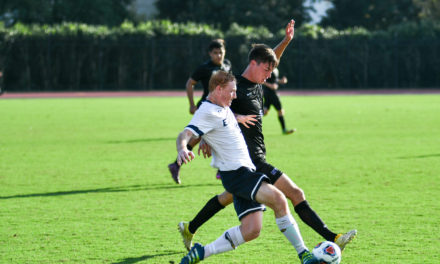For many, the Tokyo Olympics has brought many intriguing storylines that were missing in 2020. Great Britain’s 13-year-old skateboarder Sky Brown is one of the youngest to ever compete, New Zealand’s Laurel Hubbard is the first openly transgender woman competing in the Olympics and Emory University alum Andrew Wilson (17C) became the first male Division III swimmer ever to represent Team USA in the Olympics.
Some of the biggest news in the Games came only four days after its kickoff when 24-year-old U.S. gymnast Simone Biles, widely considered the greatest female gymnast of all time, withdrew from the team final and individual all-around competitions. Biles was not in the right place mentally to compete without being at risk for a severe injury. She had something referred to in the gymnastics world as the “twisties,” when the mind and body are out of sync and a gymnast cannot tell up from down.
Biles has earned a total of 25 medals in world championships along with seven Olympic medals. After winning her first gold medal at the women’s all-around final at the FIG World Artistic Gymnastics Championships in October 2013, Biles has been a renowned gymnast. Since then, she has carried the tremendous weight of being one of the best gymnasts in the world.
However, one week before leaving for the Tokyo Olympics, Biles was asked in a New York Times telephone interview what the happiest moment of her career has been. You would expect the Olympic champion to respond with the time she won gold or maybe the first time competing on the world stage, but Biles’ answer was surprising.
“Honestly, probably my time off,” Biles said.
Along with the pressure of performing her best, Biles revealed in 2018 that she faced sexual abuse by former U.S. gymnastics team doctor and convicted sex offender Larry Nassar. Two weeks ago, news broke that the FBI failed to properly investigate the sexual abuse allegations against Nassar. Officials kept evidence hidden about Nassar and USA Gymnastics President Steve Penny traded favors with local FBI agent Jay Abbott to hush the evidence.
Nassar has been accused by more than 330 girls and women and is serving a life sentence in prison. Although Nassar is in prison, many are still publicly fighting this emotional battle. Gymnast Mckayla Maroney retired in 2016 and had been sexually abused by Nassar. Maroney believes there still needs to be accountability as she tweeted on August 1, “When I was alone, naked, with Larry Nassar on top of me for 50min balling. Who’s fault is that?” Biles also believes there needs to be change in the USA Gymnastics organization. One of the main reasons Biles came back to compete in the Tokyo Olympics was to act as a voice to advocate for change.
“If there weren’t a remaining survivor in the sport, they would’ve just brushed it to the side,” Biles said.
As Biles continues to struggle with the trauma of sexual abuse and the physical toll that gymnastics has put on her, she has called the cumulative effect of training and competing on her body “unreal.”
“Pain is just something I live with and that is pretty odd for my age, right? It feels weird if I’m not in pain,” Biles said. “At the end of the day, it’s like, we want to walk out of here. Not be dragged out of here on a stretcher or anything.”
Biles is not the first athlete to pull out because of not being in the right place mentally. Twenty-three-year-old U.S. tennis star Naomi Osaka withdrew from the French Open this past May over mental health issues. Osaka said she had been dealing with bouts of depression and anxiety ever since she defeated U.S. tennis legend Serena Williams in the 2018 U.S. Open final. Osaka has since become the highest-paid female athlete ever, and at such a young age, Osaka struggled with her newfound fame and sky-high expectations.
Athletes like Osaka and Biles deserve to take time off for their mental health. Even after nailing the landing for eight straight years on a global stage, Biles’ decision to opt out of some events in this year’s Olympics is disappointing to some people. She was judged for her decision to drop out of Olympic events when in reality, it was a very difficult, brave and unselfish decision made for her well-being and the benefit of her team. Athletes are human beings after all, not commodities.
Although Biles was scrutinized by many for her decision to withdraw, she also received a lot of support on social media. Biles responded to this support in a tweet.
the outpouring love & support I’ve received has made me realize I’m more than my accomplishments and gymnastics which I never truly believed before. 🤍
— Simone Biles (@Simone_Biles) July 29, 2021
Biles decided to take part in the balance beam event and won the bronze medal despite her struggles with the “twisties” and mental health issues. After the event, she revealed that her aunt had unexpectedly died two days before competing in the balance beam. Biles proved that she could pull off a great performance while dealing with tragedy and tremendous stress.
Most athletes deal with the pressure to perform at a level of perfection. With all the sacrifices athletes make, fans owe it to their idols to be nothing but understanding of their decisions to prioritize mental health and well-being. Perhaps we can add to Biles’ list of greatest achievements the wisdom she had to be a role model and put her mental health first while competing on her own terms.

Simone Biles performing her routine at the Tokyo Olympics. Biles withdrew from multiple events to focus on her mental health. (Wikimedia Commons/Secretaría de Deportes)
Grace Reyer (she/her) (24B) is from Croton on Hudson, New York, on the business track with concentrations in environmental management and film and media management. Reyer is also a member of the Emory Women’s Soccer team, and an avid fan of both LeBron James and Megan Rapinoe. Aside from athletics, Reyer also loves to travel, paddleboard, and hike.






